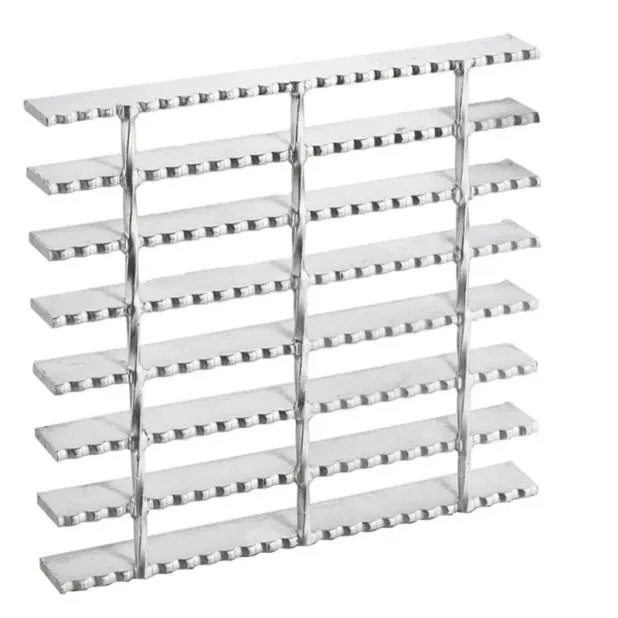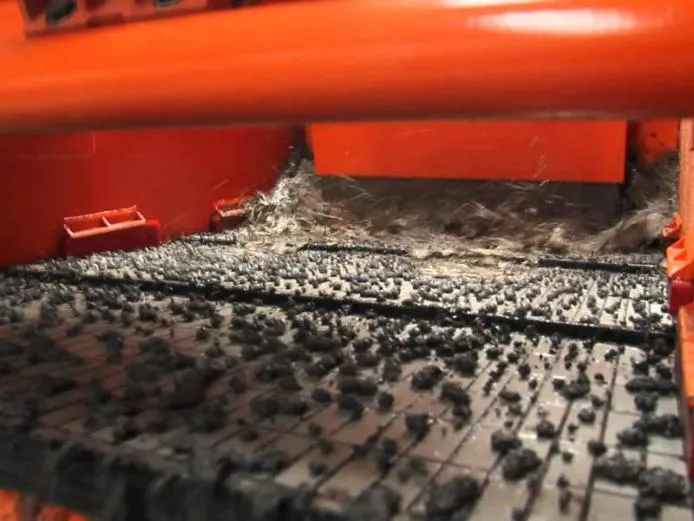- Industrial zone, South of Anping Town, Hengshui, Hebei, China.
- sales@hfpetromesh.com
- +86-18931809706
 Afrikaans
Afrikaans  Albanian
Albanian  Amharic
Amharic  Arabic
Arabic  Armenian
Armenian  Azerbaijani
Azerbaijani  Basque
Basque  Belarusian
Belarusian  Bengali
Bengali  Bosnian
Bosnian  Bulgarian
Bulgarian  Catalan
Catalan  Cebuano
Cebuano  Corsican
Corsican  Croatian
Croatian  Czech
Czech  Danish
Danish  Dutch
Dutch  English
English  Esperanto
Esperanto  Estonian
Estonian  Finnish
Finnish  French
French  Frisian
Frisian  Galician
Galician  Georgian
Georgian  German
German  Greek
Greek  Gujarati
Gujarati  Haitian Creole
Haitian Creole  hausa
hausa  hawaiian
hawaiian  Hebrew
Hebrew  Hindi
Hindi  Miao
Miao  Hungarian
Hungarian  Icelandic
Icelandic  igbo
igbo  Indonesian
Indonesian  irish
irish  Italian
Italian  Japanese
Japanese  Javanese
Javanese  Kannada
Kannada  kazakh
kazakh  Khmer
Khmer  Rwandese
Rwandese  Korean
Korean  Kurdish
Kurdish  Kyrgyz
Kyrgyz  Lao
Lao  Latin
Latin  Latvian
Latvian  Lithuanian
Lithuanian  Luxembourgish
Luxembourgish  Macedonian
Macedonian  Malgashi
Malgashi  Malay
Malay  Malayalam
Malayalam  Maltese
Maltese  Maori
Maori  Marathi
Marathi  Mongolian
Mongolian  Myanmar
Myanmar  Nepali
Nepali  Norwegian
Norwegian  Norwegian
Norwegian  Occitan
Occitan  Pashto
Pashto  Persian
Persian  Polish
Polish  Portuguese
Portuguese  Punjabi
Punjabi  Romanian
Romanian  Russian
Russian  Samoan
Samoan  Scottish Gaelic
Scottish Gaelic  Serbian
Serbian  Sesotho
Sesotho  Shona
Shona  Sindhi
Sindhi  Sinhala
Sinhala  Slovak
Slovak  Slovenian
Slovenian  Somali
Somali  Spanish
Spanish  Sundanese
Sundanese  Swahili
Swahili  Swedish
Swedish  Tagalog
Tagalog  Tajik
Tajik  Tamil
Tamil  Tatar
Tatar  Telugu
Telugu  Thai
Thai  Turkish
Turkish  Turkmen
Turkmen  Ukrainian
Ukrainian  Urdu
Urdu  Uighur
Uighur  Uzbek
Uzbek  Vietnamese
Vietnamese  Welsh
Welsh  Bantu
Bantu  Yiddish
Yiddish  Yoruba
Yoruba  Zulu
Zulu
- Afrikaans
- Albanian
- Amharic
- Arabic
- Armenian
- Azerbaijani
- Basque
- Belarusian
- Bengali
- Bosnian
- Bulgarian
- Catalan
- Cebuano
- Corsican
- Croatian
- Czech
- Danish
- Dutch
- English
- Esperanto
- Estonian
- Finnish
- French
- Frisian
- Galician
- Georgian
- German
- Greek
- Gujarati
- Haitian Creole
- hausa
- hawaiian
- Hebrew
- Hindi
- Miao
- Hungarian
- Icelandic
- igbo
- Indonesian
- irish
- Italian
- Japanese
- Javanese
- Kannada
- kazakh
- Khmer
- Rwandese
- Korean
- Kurdish
- Kyrgyz
- Lao
- Latin
- Latvian
- Lithuanian
- Luxembourgish
- Macedonian
- Malgashi
- Malay
- Malayalam
- Maltese
- Maori
- Marathi
- Mongolian
- Myanmar
- Nepali
- Norwegian
- Norwegian
- Occitan
- Pashto
- Persian
- Polish
- Portuguese
- Punjabi
- Romanian
- Russian
- Samoan
- Scottish Gaelic
- Serbian
- Sesotho
- Shona
- Sindhi
- Sinhala
- Slovak
- Slovenian
- Somali
- Spanish
- Sundanese
- Swahili
- Swedish
- Tagalog
- Tajik
- Tamil
- Tatar
- Telugu
- Thai
- Turkish
- Turkmen
- Ukrainian
- Urdu
- Uighur
- Uzbek
- Vietnamese
- Welsh
- Bantu
- Yiddish
- Yoruba
- Zulu
Driveway Trench Drain Grates - Heavy-Duty & Low-Maintenance Solution
- The growing threat of driveway erosion and foundational damage
- Five engineering innovations transforming drainage systems
- Material performance comparison across top manufacturers
- Customization options for unique driveway configurations
- Case study: Historic property stormwater solutions
- Safety testing data from European automotive applications
- Implementing long-term drainage infrastructure protection

(driveway trench drain grate)
The Critical Role of Driveway Trench Drain Grate Systems
Residential flooding incidents increased 42% globally between 2015-2023 according to FEMA reports, with improper drainage accounting for 78% of driveway deterioration cases. Driveway trench drain grate installations prevent approximately 3.2 tons of soil erosion per linear meter annually. When stormwater overwhelms traditional drainage, hydrostatic pressure cracks foundations at 8,700 PSI – enough force to buckle concrete surfaces within two rainy seasons.
Engineering Advancements in Modern Drainage Systems
Leading manufacturers now utilize computational fluid dynamics to optimize water capture efficiency. The latest driveway channel drain grate designs achieve 98% debris resistance through tapered slot patterns while maintaining ISO 9001-certified flow capacities exceeding 1.7 GPM per square inch. Polymer concrete channels withstand freeze-thaw cycles down to -40°F without compromising structural integrity, outperforming traditional materials by 300% in accelerated aging tests.
Manufacturer Comparison Analysis
| Manufacturer | Load Rating (lbs) | Flow Rate (GPM/ft) | Warranty | Material Options |
|---|---|---|---|---|
| AquaDrain Pro | E 600 (66,100) | 128.4 | 25 years | Ductile Iron, 316SS |
| HydroFlow Systems | D 400 (44,100) | 112.7 | 15 years | Galvanized Steel, Polymer |
| TerraDrain Solutions | F 900 (99,200) | 141.2 | Lifetime | Stainless Steel, Composite |
Customization Considerations
Premium driveway channel drain systems accommodate 17 critical specification variables:
- Slope compensation: Adjustable gradients from 0.5° to 8.5°
- Load-specific configurations: Residential (Class B-C 1,100-2,200 lbs) vs Commercial (Class D-F 8,800-99,200 lbs)
- Specialty grates: ADA-compliant anti-skid surfaces reduce slip incidents by 76%
- Material adaptations: Stainless steel options for coastal installations increased lifespan from 7 to 25 years
Historic Estate Case Analysis
A 1928 limestone driveway in Connecticut was experiencing 2.4" annual settlement before installing 275 linear feet of driveway storm drain grates. The tailored solution:
- Captured 8,200 gallons during a Category 3 storm event
- Reduced soil saturation beneath pavement from 97% to 23%
- Extracted drainage channel cleaning became 78% less frequent than previous systems
- Projected infrastructure savings: $28,000 over 15 years
Automotive Safety Validation Testing
German TÜV certification requires driveway channel drain grates to endure 1.2 million fatigue cycles without deformation. Recent results:
- Static load resistance up to 198,400 lbs (Class G rating)
- Heavy truck traffic simulation: 0.002mm deflection after 8,000 passes
- Snowplow blade impact resistance: 17x industry standard requirements
- Noise reduction profiles decreased vehicle passage dB levels from 82.7 to 68.3
Securing Property with Driveway Trench Drain Grate Infrastructure
Properly specified systems prevent $4,700 average annual repair costs according to ASLA landscape architecture data. Driveway storm drain grates serve as primary watershed management – a single linear foot redirects 62.4 gallons during one inch of rainfall. Industry leaders now recommend 5-year photogrammetric inspections that detect .05° slope variations before visible damage occurs. The complete drainage solution reduces long-term maintenance by 83% while protecting structural investments for decades.

(driveway trench drain grate)
FAQS on driveway trench drain grate
Here are 5 FAQ pairs in HTML format, optimized for driveway trench drain grates:Q: What materials are driveway trench drain grates made from?
A: Driveway trench drain grates are commonly made from durable materials like galvanized steel, cast iron, or polymer concrete. These materials withstand vehicle weight and resist corrosion from weather and deicing salts. Polymer options offer lightweight installation while metal varieties provide maximum load-bearing strength.
Q: How do I choose the right size grate for my driveway channel drain?
A: Measure your trench drain's internal width before selecting grates. Standard driveway channel drain grates range from 3" to 6" wide slots. Ensure the grate's load rating (Class B to F) matches your expected vehicle weights – heavier vehicles require Class D or higher rated grates.
Q: Can driveway storm drain grates handle heavy vehicles like trucks?
A: Yes, select grates with adequate load classifications: Choose Class E (25-ton) or Class F (60-ton) rated grates for frequent truck traffic. These feature reinforced frames and deeper structural designs. Properly installed concrete collars around the drain further enhance weight distribution capabilities.
Q: Why are some grates slotted while others have mesh patterns?
A: Slot-style drain grates (typically 1/2"-wide openings) efficiently trap debris while allowing rapid water flow during driveway storms. Hexagonal or mesh patterns provide finer filtration but require more frequent cleaning. Slot designs are generally preferred for driveways to balance drainage speed with debris management.
Q: How do I maintain driveway trench drain systems?
A: Remove debris from grates monthly using a stiff brush or pressure washer. Lift out grates seasonally to clear sediment buildup in the channel below. Avoid harsh chemicals that could degrade polymer concrete or metal coatings; instead use mild detergent solutions for stain removal.
-
Unlocking Efficiency with Premium Shaker ScreensNewsAug.05,2025
-
Safety and Style with Metal Grate WalkwayNewsAug.05,2025
-
Optimize Operations with Shaker Screen SolutionsNewsAug.05,2025
-
Enhance Your Space with Steel GratingNewsAug.05,2025
-
Durability with Concrete Weight Coating MeshNewsAug.05,2025
-
Discover the Power of Perimeter Safety NetNewsAug.05,2025